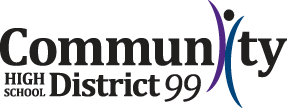D99 Parents and Guardians,
As we look forward to warmer weather and more opportunities for in-person learning and socializing, we want to encourage students to be proactive about their physical and emotional wellbeing. This week we shared a Spring Break Wellness flyer with students, which includes health and wellness strategies, activity ideas, and emergency crisis information.
We know parenting can be challenging, even more so during a pandemic! Be easy on yourself. We’re here to partner with your family to support the health and success of our students. Here are some great ways to encourage wellness in your teen this spring break and beyond:
- Reflect with your teenager now that we’re at the midpoint of the semester. What are their goals and challenges for the remainder of the year?
- These articles may help you develop a plan if your student is struggling with motivation or work completion.
- Eat together. One organic way to support your teen’s development is to regularly eat meals together. Check out the benefits at thefamilydinnerproject.org.
- Discuss the importance of avoiding alcohol and other substance use in high school. Teenagers consistently report that the number one reason they choose not to use substances is articulated family values/expectations surrounding abstinence. Find more information on specific substances and tips on starting a conversation at drugfree.org
- Find an activity to do together over break.
- Visit a Chicago/local museum, zoo, or outdoor destination
- Offer to pay your teen (or allow them to earn a privilege) by helping you with spring cleaning or a project in the yard.
- If you’re taking a road trip, ask your teen to make a playlist of their favorite music to play in the car or decide together on an audio book everyone can enjoy
- Find a new TV series to watch together
We know that isolation, changes to schedules, and other challenges and stressors can have an impact on teens’ mental health. Here are signs and symptoms of mental health issues to watch for in your teen:
- Feeling sad or down
- Excessive fears or worries, or extreme feelings of guilt
- Inability to cope with daily problems or stress
- Problems with alcohol or drug use
- Major changes in sleeping or eating habits
- Excessive anger, hostility or violence
- Suicidal thinking
If you’re concerned about your teen’s mental health or safety, please use the following resources:
- North High Community Mental Health Resources
- South High Community Mental Health Resources
- grit2, Growing Resiliency in Teens Together
- National Alliance on Mental Illness (NAMI)
- National Suicide Prevention Hotline: call or text 1-800-213-TALK
We hope you all have a safe and relaxing break and we look forward to welcoming students back on Tuesday, April 6!
Keith Bullock, DGN Student Assistance Coordinator, kbullock@csd99.org
Diana Benoist, DGS Student Assistance Coordinator, dbenoist@csd99.org
